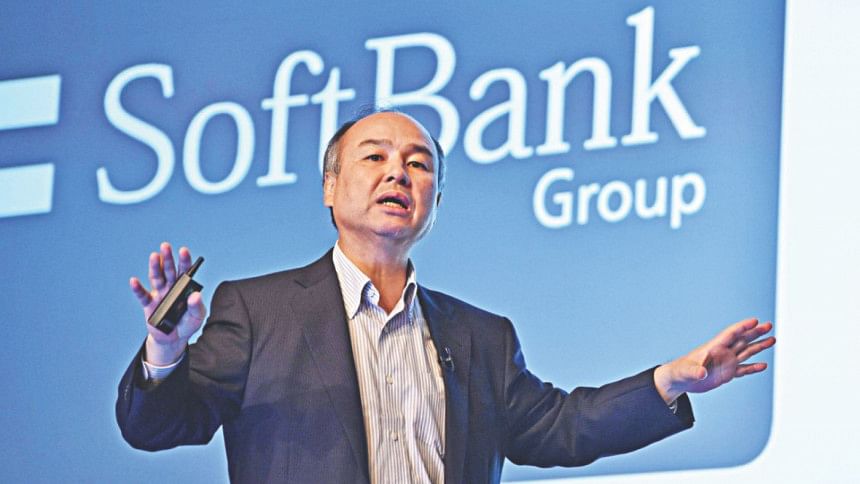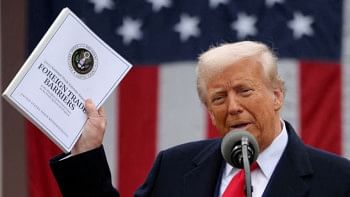Masayoshi Son: From chicken feed to Japan's richest tycoon

Once asked on Twitter about his receding hairline, Masayoshi Son, founder of Japanese telecoms giant SoftBank, retorted: "My hair is not receding. I'm advancing."
It was a typically bullish remark from the 60-year-old tycoon, listed by Forbes as Japan's richest man with an estimated fortune of $22.2 billion, who has embarked on a furious spree of purchases culminating in Thursday's deal to take a hefty stake in ride-sharing app Uber.
Under Son's leadership, SoftBank is sending shockwaves through the tech world with its massive new Vision Fund -- a venture capital fund with $100 billion in its coffers intended for start-ups.
The new fund is expected to dominate the industry to such an extent, it's playfully referred to as a "gorilla".
The bold and flamboyant Son was one of the first personalities from the business world to meet another unconventional tycoon -- Donald Trump -- last year after his election victory.
Son pledged to invest $50 billion in the US economy and create 50,000 jobs and Trump's off-the-cuff announcement of this gave reporters their first glimpse into the president-elect's unusual communication strategy.
Son's SoftBank has not been afraid to venture outside its core business -- completing deals with the likes of e-commerce Chinese giant Alibaba and French robotics firm Aldebaran, which developed the chatty human-shaped "Pepper" robot.
And on Thursday, Softbank and Uber announced that the tech titan would take a large stake in the US ridesharing giant -- 15 percent of the equity according to a source familiar with the terms of the deal.
But the wheeler-dealing of today belies a background that could scarcely be more humble.
Son was born in 1957 to ethnic Korean parents on the southern Japanese island of Kyushu.
His family scratched a living raising poultry and hogs in a country where Koreans have long faced discrimination stemming from the Japanese occupation of the peninsula between 1910 and 1945.
"I sat in a cart when I was small. It was so slimy that I felt sick. My grandmother, who is dead now, was pulling the cart," Son recalled in a 1996 speech when accepting a business award.
"We collected leftover food from neighbours and fed it to cattle. It was slimy. We worked hard," he said. "And I've worked hard."
Son went to the US as a 16-year-old and later studied at the University of California at Berkeley where he began his business career. His first big success came when he invented a computer system to translate English into Japanese. He later sold it to Sharp for one million dollars.
In 1981, a year after returning from the US, he founded SoftBank as a software wholesaler and publisher of computer magazines.
Since going public in 1994, SoftBank has consistently made headlines with its aggressive strategy of taking over Japanese and foreign businesses, a jolt to the staid world of corporate Japan.

 For all latest news, follow The Daily Star's Google News channel.
For all latest news, follow The Daily Star's Google News channel. 



Comments